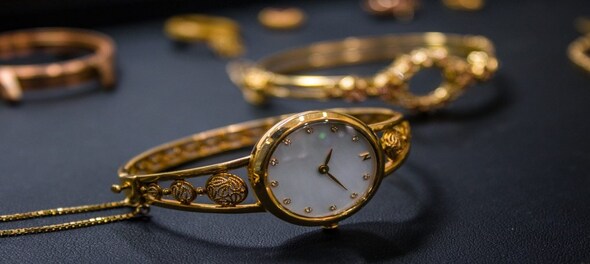
The innocuous board outside the boxy white building indicates that this is the facility for India’s first bespoke gold and precious stones studded watch. But it offers no indication of what the interiors hold.
Within the sprawling Titan factory, on the outskirts of Bengaluru, is a watch unit that makes, from scratch, India’s first jewellery watch, Nebula — an exquisite timepiece crafted from 18kt and 22kt yellow gold (with very few customised, on-demand watches in pink and white gold). A few of these are studded with precious stones such as diamonds, emeralds and rubies.
Nebula by Titan just completed 20 years. The beauty of this Indian jewellery watch (for both men and women) is embodied in the unique ways in which it marries craftsmanship and the country’s jewellery traditions with state-of-art movement, one of the slimmest in the world and developed right here in the Bengaluru factory.

The skills brought to the fore in the making of Nebula is a clever fusion of a watchmaker, a jeweller and a gem setter. Nebula’s journey began two decades ago when Titan felt it needed to add a jewellery watch to its repertoire. “The best jewellery watches use precious metals or gemstones or both,” said S Ravi Kant, chief executive officer, watches and accessories at Titan. “We had the knowhow and the ability to craft watches in the best of jewellery traditions because of our sister company, Tanishq. We could leverage their knowhow and match it with Titan’s mastery over watchmaking.”
Realising that there is a huge potential in the world of jewellery watches, Titan launched Nebula in 1999, in the price range of Rs 25,000 to Rs 7 lakh. The idea was to match the standards set by the best Swiss jewellery watches, but at price points far lower. The first few batches sold out quickly but then Nebula faced a roadblock.
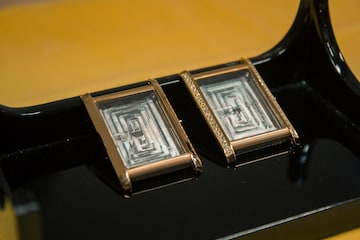
While the demand rose, multi-brand retailers realised that there weren’t enough watches to go around. Kant reflects on this, “We decided to sell the watches through just the Titan showrooms across India to ensure we meet the demand. The entire cycle of production takes a certain amount of time, and we can’t hurry the process. So Nebula will always be manufactured in limited numbers. But, we are ready to ramp up the production now.”
On The Shop Floor
Titan invited watch writers to explore their manufacturing processes, a first for the brand. And the world that awaits us inside that regular looking white building narrates a story about what makes Titan one of the best watch brands in this part of the world.
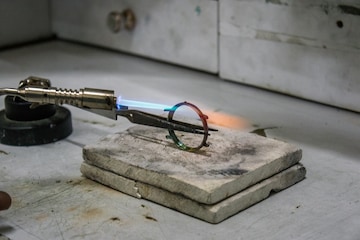
With the idea to ensure that there is very little loss of gold used for crafting Nebula, every person who enters the shop floor has to leave the jewellery they are wearing outside.
Across the facility are various rooms dedicated to the different processes that the watch is put through before it reaches the craftsmen and artisans who set the stones — the shining diamonds, the glittering emeralds and the blood red rubies using centuries-old traditions of gem setting.
The unit houses two hydraulic presses to carry out the crucial forming and shearing operations. A significant part of the process is also handcrafting and setting of the skeletal hands on this jewelled quartz watch.
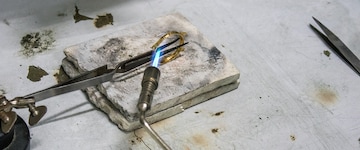
The machines used to shape, carve and mould the gold into a dial have been imported from Switzerland. A few robots are used in the manufacturing process, as is the norm in Switzerland. The shavings or waste are collected and recycled into new watches. The delicate bracelet that forms the strap of the women’s watches are handcrafted by experienced Tanishq jewellers. “Titan, like most watchmakers around the world, employs a large number of women in the assembly line, since the process requires immense delicacy and patience,” said Kant.
The Slimmest Movement
Each of the Nebula by Titan watch today includes the slimmest movement in the world that was launched by Titan way back in 2002. “It was produced indigenously after four years of intensive research and development,” said Kant. “The Edge movement has a total slimness of just 3.5 mm and a wafer-thin movement of 1.15 mm.”
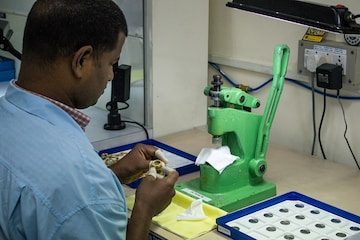
The Edge is a true technological marvel given the intricacies involved in producing a watch as slim, and is a result of close collaboration between Titan's design studio, the production department and the R&D team.
Setting The Stones
Among Nebula by Titan’s collections that blend India’s jewellery traditions with the best of watch craftsmanship is Nazakat, a range of artisanal watches with delicate Meenakari and Polki art on the dial and the bracelet for which the watches are sent to the best artisans in Rajasthan.
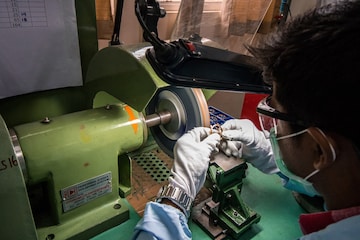
The pieces use the craft of setting uncut diamonds on 22KT gold surface (kundanpolki) with hand-drawn patterns made by glass enamel on gold surface. In their other iterations, artisans from Varanasi use Banarasi Meena or Pink Meena techniques on the dial to create stunning patterns that go from floral to geometrical. Filigree, or the delicate art of jewellery metalwork is another jewellery tradition that Titan has explored, along with the art of Calligraphy for which they used the ancient Modi language of calligraphy (not to be confused by the name of India’s Prime Minister).
Suparna Mitra, chief marketing officer, Titan tells me after the factory visit, “The USP of Nebula watches are the design inspirations and the interpretation of Indian grandeur and heritage. We capture the beauty of India’s artisanal craftsmanship.” The best-selling collection, The Palace Collection, was inspired by ornate palaces — Umaid Bhawan’s art deco chic and Falaknuma Palace’s spectacular architecture. The two are now run by the Taj Group as luxury hotels. “Everyone likes the idea of wearing something regal, royal, inspired by the beauty of India’s imperial past,” she said.
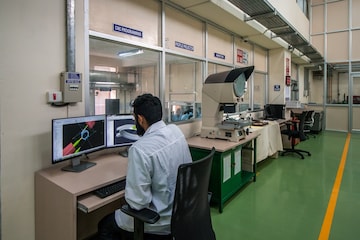
Many of these limited-edition watches are priced between Rs 5.5 and Rs 7 lakh. They were designed by product designer Abhijit Bansod using enamel and rose gold. Complementing the gemstones was a 25-jewel Swiss automatic movement and a gold buck.
Bolstering The Distribution Network
Titan plans to ramp up the production and the distribution of Nebula through its vast network of Titan World stores across India, besides the Tanishq stores. Kant said that a large part of demand comes from India’s six leading metros and cities. At present, Nebula contributes about 7 percent per cent of all Titan sales, but is considered a project of prestige for the brand. “It represents the best of our craft, art and watchmaking traditions, which is why we are planning to pay more attention to getting the message out to the world,” he adds.
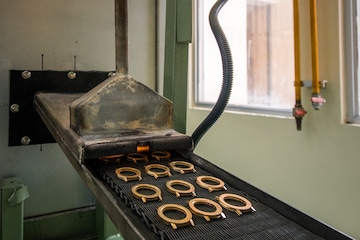
A small portion of the watches are also bought by NRIs as well as some customers in the Middle East. But it is in the Indian jewellery and jewellery watches market that Titan hopes to ramp up its presence with Nebula. “South India has proven to be a big market for us,” said Kant. “But other markets are opening up.”
Titan has formed strategic alliances with luxury brands such as Maison Montblanc to set up exclusive MontBlanc stores in India and has acquired a heritage watch brand like Favre Leuba.
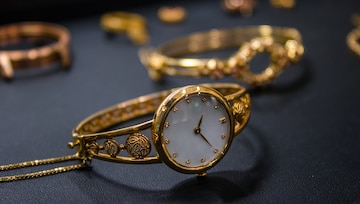
It has enough expertise in selling luxury brands. It now needs to bring that expertise to ramping up Nebula’s presence, and its production, to ensure its place in the booming luxury watch market of India.
Deepali Nandwani is a journalist who who keeps a close watch on the world of luxury.
First Published: Nov 9, 2018 9:16 AM IST
Check out our in-depth Market Coverage, Business News & get real-time Stock Market Updates on CNBC-TV18. Also, Watch our channels CNBC-TV18, CNBC Awaaz and CNBC Bajar Live on-the-go!


Exclusive: FM Nirmala Sitharaman says poverty alleviation can't be achieved by throwing money at the problem
Apr 18, 2024 7:27 PM
Tamil Nadu Lok Sabha elections 2024: List of Congress candidates
Apr 18, 2024 4:33 PM
Will the payment under PM-KISAN be increased? Here's what Finance Minister said
Apr 18, 2024 3:58 PM

